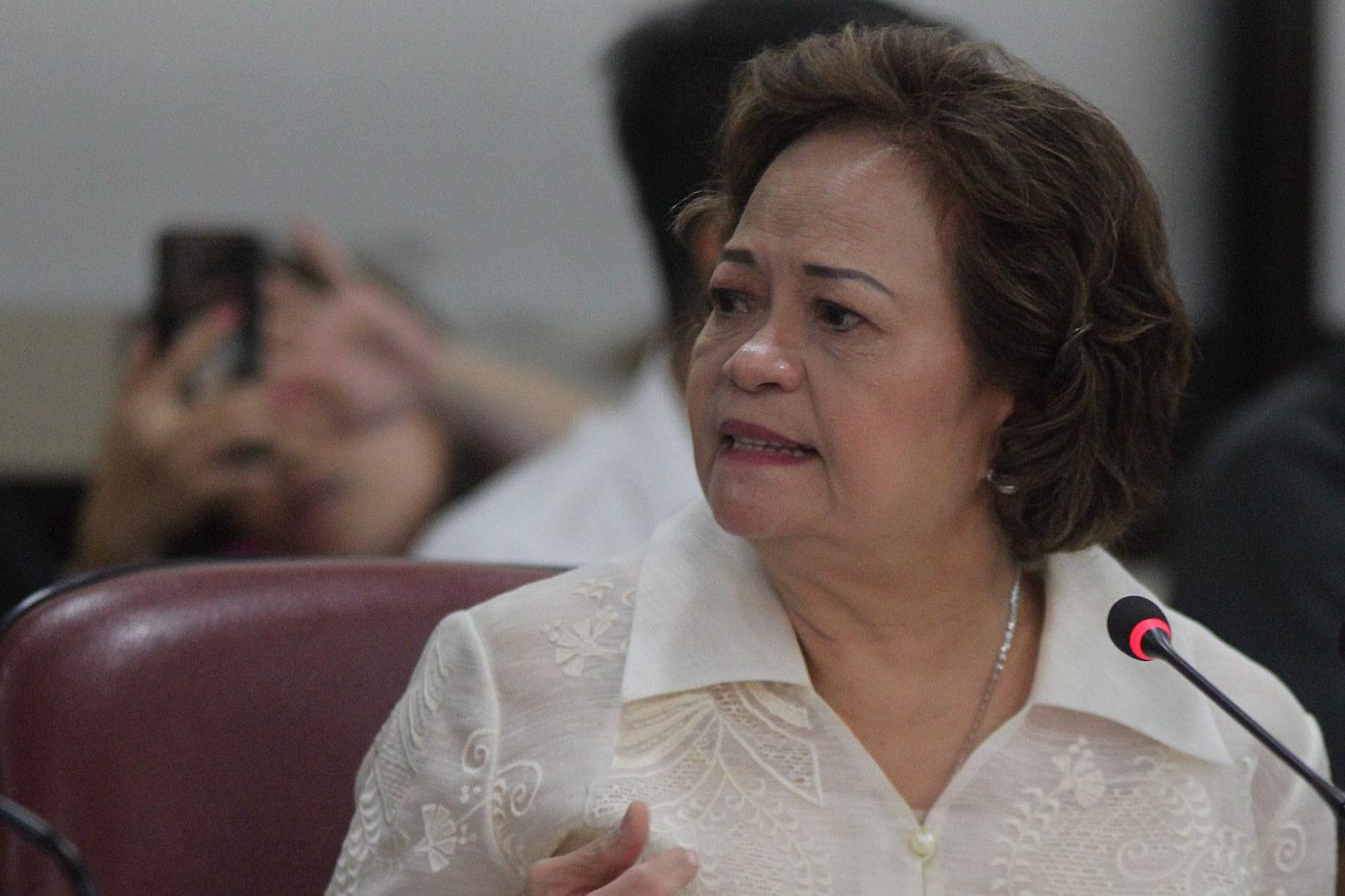SUMMARY
This is AI generated summarization, which may have errors. For context, always refer to the full article.

MANILA, Philippines (UPDATED) – President Rodrigo Duterte has picked Teresita Leonardo De Castro as the new Supreme Court (SC) Chief Justice.
De Castro, who replaces ousted chief justice Maria Lourdes Sereno, will be top magistrate for less than two months, since she retires on October 8.
De Castro took the spotlight during the November 2017 hearing of the House committee on justice on the impeachment complaint filed against Sereno. She eventually voted as part of the SC majority to oust Sereno via quo warranto.
Here’s what you need to know about Justice Teresita Leonardo-De Castro.
Twice bypassed for CJ post
De Castro was bypassed for the position of chief justice during the administrations of Gloria Macapagal Arroyo and Benigno Aquino III.
Arroyo appointed De Castro as SC justice in December 2007.
In the SC, she holds the following positions:
- Working Chairperson of the First Division
- Chairperson, Judicial Reform Support Project
- Chairperson, Committee on Computerization and Library
- Chairperson, Committee on Gender Responsiveness in the Judiciary
- Chairperson, Special Committee to Draft Rules on Sexual Harrasment in the Judiciary
- Working Vice-Chairperson, Committee on Ethics and Ethical Standards
- Working Vice-Chairperson, Halls of Justice Coordinating Committee
- Member, Supreme Court Internal Rules Committee
De Castro has spent almost 40 years in government, beginning in February 1973 as a law clerk in the Office of the Clerk of Court. Two years later, she became a member of the technical staff of the late chief justice Fred Ruiz Castro and was also a judicial assistant.
In 1978, she served as State Counsel I at the Department of Justice and rose to the position of Assistant Chief State Counsel by 1997, according to her profile on the SC website.
During the administrations of Corazon C. Aquino and Fidel V. Ramos, De Castro served as an international and peace negotiator.
She was an associate justice at the anti-graft court Sandiganbayan in 1997, and became presiding justice in 2004.
De Castro earned her bachelor’s degree and law degree from the University of the Philippines in 1968 and 1972, respectively, and finished among the top 4 of her class at UP law. De Castro was also vice-chancellor and member of the Order of the Purple Feather – the honor society of the UP College of Law.
According to her profile, De Castro took law courses at the International Law Institute in Washington DC, and Harvard Law School’s Program Instruction for Lawyers.
She is a member of the Phi Kappa Phi and Phi Gamma MU International Honor Societies and is the president of the Philippine Women Judges Association. From 2012 to 2014, De Castro served as president-elect of the International Association of Women Judges.
Feud with CJ Sereno?
During the impeachment proceedings against Sereno at the House of Representatives, then House Majority Leader Rodolfo Fariñas described De Castro’s appearance as “unprecedented“ as SC justices rarely appeared to testify congressional inquiries. Normally, justices are heard only through the decisions and opinions they write.
De Castro’s attendance was much awaited considering she was invited by the committee to testify on at least 4 points that lawyer Larry Gadon cited as supposedly impeachable offenses. (LOOK: Why petitioners want Sereno impeached)
Among these accusations are the creation of a Judiciary Decentralized Office (JDO), which ran counter to the Regional Court Administration Office (RCAO) in Region 7 that the en banc approved; an alleged falsified temporary restraining order on party-list proclamations; clustering at the Judicial and Bar Council; and the case involving former solicitor general and now Associate Justice Francis Jardeleza. (READ: How Sereno answered her impeachment complaint)
It was now the first time De Castro spoke against Sereno. Earlier in July, she issued a 5-page memorandum to all SC justices regarding 3 objections on the actions of Sereno.
The objections included issues against Sereno’s alleged inaction on appointments to key SC positions, the appointment of Brenda Jay Mendoza as head of the Philippine Mediation Center, and the foreign travel of Sereno’s staff lawyer, Ma Lourdes Oliveros.
De Castro was also the justice who questioned Sereno’s decision to create a permanent JDO in the Visayas in 2012, with the SC eventually revoking her order. The RCAO was tackled at the impeachment hearing on Wednesday. (READ: De Castro accuses Sereno of deception)
In 2007, De Castro’s independence was questioned, following her appointment by Arroyo. As one of the 3 Sandiganbayan magistrates who convicted ousted president Joseph Estrada of plunder, Estrada said her appointment to the SC was a “reward.” – with reports from Jodesz Gavilan/Rappler.com
Add a comment
How does this make you feel?
There are no comments yet. Add your comment to start the conversation.